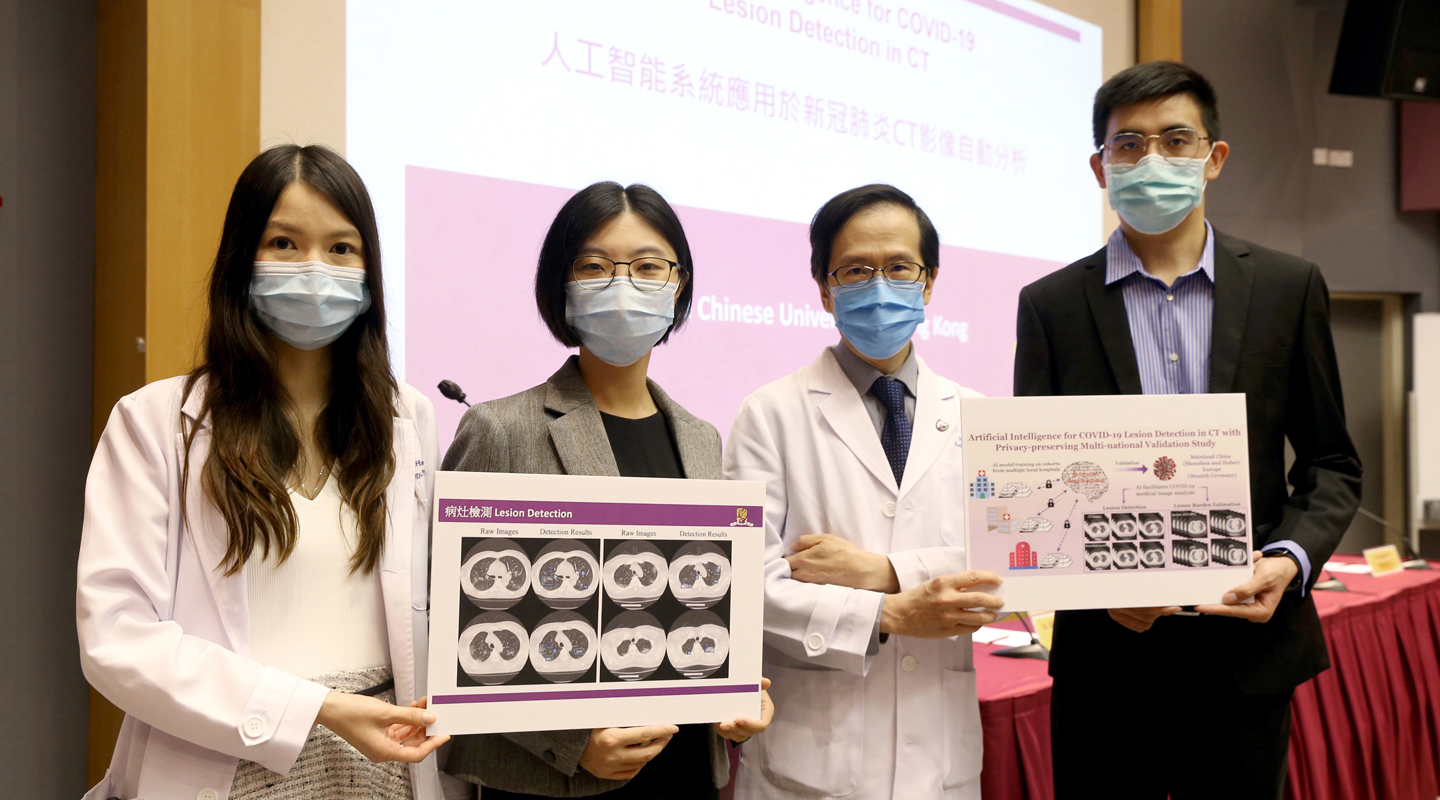Dear readers, With the launch of e-newsletter CUHK in Focus, CUHKUPDates has retired and this site will no longer be updated. To stay abreast of the University’s latest news, please go to https://focus.cuhk.edu.hk. Thank you.
Tracking COVID-19 with Artificial Intelligence
Cross-disciplinary team develops AI system for swift and accurate Coronavirus detection

A multidisciplinary research team from CUHK has developed an artificial intelligence (AI) system for the automated, rapid and accurate detection of COVID-19 infections in chest computed tomography (CT) images.
Collaborating closely among various engineering and clinical experts, the research team has successfully made use of cutting-edge federated learning techniques and developed an AI system that can effectively coordinate patients’ data across multiple clinical centres in Hong Kong for model development, providing immediate results and alleviating the burden of clinicians in interpreting images.
‘The established AI system is validated on multiple independent external cohorts from mainland China and Europe, showing the potential and possibility to build large-scale medical datasets and reliable AI models amidst a global disease outbreak such as the COVID-19 pandemic,’ said Prof. Dou Qi from the Department of Computer Science and Engineering.
According to the experimental outcomes from the externally validated cohorts, the AI model developed by the CUHK team yields a competitive performance in lesion detection in comparison with radiologist interpretation of chest CT across local, regional and global patients, showing outstanding robustness and generalisability of the established AI model in complex real-world situations.
‘Besides a high diagnostic accuracy, the AI system can also present a remarkable speed advantage to clinician interpretation. In traditional clinical diagnosis, review and interpretation of a single chest CT takes at least five to 10 minutes for clinicians. In contrast, the AI system can accurately evaluate the same CT data in around 40 milliseconds, showing immense potential to support real-time clinical practice,’ said Dr. Tiffany So from the Department of Imaging and Interventional Radiology at the Faculty of Medicine.
‘This study demonstrates the feasibility and efficacy of federated learning for COVID-19 image analysis, where collaborative effort is especially valuable at a time of global crisis. More importantly, beyond assisting COVID-19 management, we believe that AI, which protects patient privacy and achieves reliable generalisability in practice, has enormous potential to revolutionize smart hospitals and healthcare systems in Hong Kong and worldwide,’ said Prof. Simon Yu of the Department of Imaging and Interventional Radiology at the Faculty of Medicine.
Related research results were recently published in the npj Digital Medicine, part of the Nature Partner Journals series.